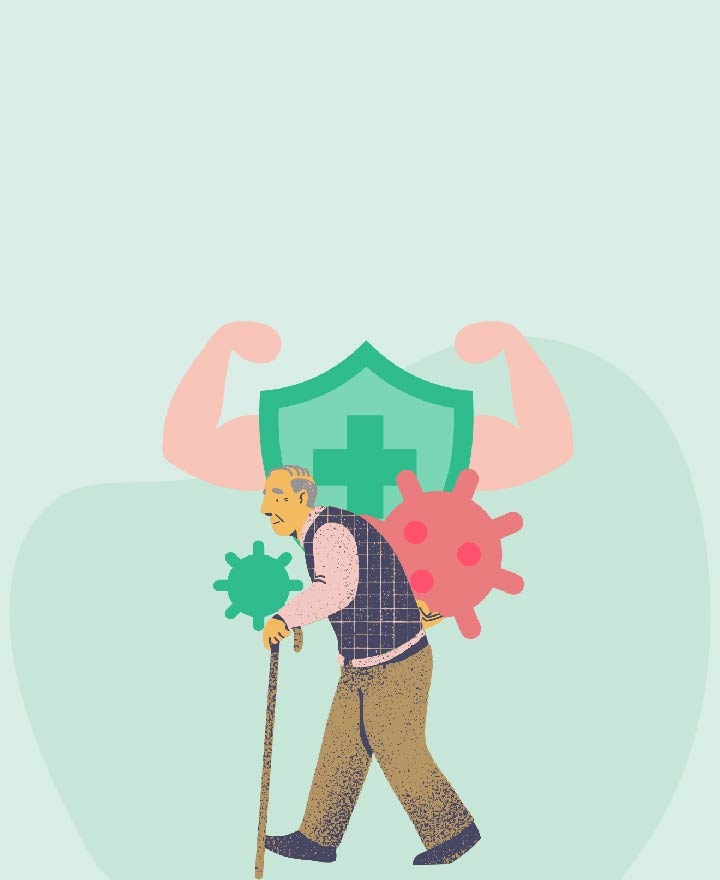

Chronic Kidney Disease Symptoms in Seniors
Chronic kidney condition (CKD) affects older adults, and it is not a rare ailment. It occurs when your kidneys are in a damaged state for more than three months. When detected early, the condition can be managed easily. But, when left untreated for a long time, it can lead to kidney failure, cardiac issues, etc. Though CKD doesn’t have a permanent cure, it can be managed well if you take care of your health. Read on to learn more about chronic kidney disease symptoms and how to manage it.
Symptoms
Some of the chronic kidney disease symptoms you should watch out for are:
• Foamy texture of urine
• Disruptions in the urination scheduling (urinating too frequently, or too little)
• Itchiness or dryness of the skin
• Fatigue
• Nausea
• Loss of hunger
• Unexplained weight loss
When the condition is at an advanced or serious stage, you may notice the following symptoms:
• Problems with focus or concentration
• Numbness in the arms and legs
• Cramps and muscle pain
• Swelling in the arms and legs
• Breathlessness
• Vomiting
• Inability to sleep properly
• Fishy-smelling breath
Causes of Chronic Kidney Disease
Diabetes and high blood pressure are top high-risk factors for CKD. Some other causes contributing to this condition include:
• Obesity
• Age (above 60 years of age)
• Cardiac issues
• Hereditary issues of CKD
• Kidney failure
• Acute injuries to the kidney
• Smoking
• Usage of other tobacco products
Ways to prevent CKD in older adults
Here are some steps you can follow to prevent CKD. Even if you are already diagnosed with this condition, these can help manage the symptoms effectively:
• Nutrition
You should reduce your consumption of salt and sugar to a great extent. Don’t consume more than 2300mg of sodium per day. Also, you should ensure that only 10% of your daily calorie requirement comes from the sugars in your meal. Your daily meal should consist of lots of fresh fruits and vegetables. Stay away from refined, processed, high-fat and frozen foods. Make it a habit to look at the labels on the food packets to know the ingredients and stay away from foods rich in trans and saturated fats.
• Exercise
When it comes to physical exercise, you should follow a simple routine every day. Staying active for 30 to 45 minutes a day for 4 to 5 days a week can keep your sugar levels at optimum levels.
• Manage weight
Obesity can make you prone to CKD. Hence, keeping your weight under control can help you keep it at bay. If you are overweight already, you can seek the professional services of a trainer or a nutritionist to keep your BMI (body mass index) at healthy levels.
• Healthy sleep cycles
Ensure you sleep for at least 6 to 8 hours every night for your vital organs to function well and to reduce your risk of chronic ailments like CKD. To improve your quality of sleep, you can try yoga, meditation, and other techniques.
• Quitting/reducing smoking and drinking
Smoking and alcohol consumption can contribute to sudden fluctuations in your blood pressure. When your blood pressure shoots up, it can make you prone to CKD, or the early stages of kidney damage. Begin by reducing your smoking/drinking habit and eventually aim to quit these altogether.
• Manage stress
High levels of stress can increase your hypertension and cause damage to your kidneys. This is why it is important to indulge in regular mental conditioning exercises like yoga and meditation.
• Know the health triggers and monitor them
As diabetes and high blood pressure contribute hugely to CKD, you should check them regularly. Take your medications on time to keep these at optimum levels always.
Conclusion
CKD is often difficult to detect in early stages because many people have no noticeable symptoms. You spot the symptoms only when the condition reaches a slightly progressed stage. However, knowing that factors like diabetes, high blood pressure, obesity and other health complications can contribute to CKD can help you greatly.
Eating nutritious meals, exercising regularly, managing stress levels, and regularly monitoring blood sugar and pressure are some of the key steps to preventing CKD in older adults.
One of the important components of our overall wellness is also being financially secured. Healthcare emergencies can happen any time, but a good health insurance policy can protect you from such uncertain situations. To know more about Wellness and other health related tips, visit the wellness corner.
Disclaimer: This blog provides general information and discussions about health and related subjects. The information and other content provided in this blog, website or any linked materials are not intended and should not be considered or used as a substitute for medical advice, diagnosis or treatment. Kindly contact your doctor before starting a new medicine or health regime.
Related Articles
Chronic Diseases In Seniors: How To Prevent And Manage
Kidney Stones: Causes, Types, Symptoms and Diagnosis
10 Common Ailments in the Elderly
Symptoms of Kidney Infection in Females
Kidney Stones - All You Need to Know
Published on June 24, 2025















 Health Insurance
Health Insurance  Travel Insurance
Travel Insurance  Car Insurance
Car Insurance  Cyber Insurance
Cyber Insurance  Critical Illness Insurance
Critical Illness Insurance
 Pet Insurance
Pet Insurance
 Bike/Two Wheeler Insurance
Bike/Two Wheeler Insurance  Home Insurance
Home Insurance  Third Party Vehicle Ins.
Third Party Vehicle Ins.  Tractor Insurance
Tractor Insurance  Goods Carrying Vehicle Ins.
Goods Carrying Vehicle Ins.  Passenger Carrying Vehicle Ins.
Passenger Carrying Vehicle Ins.  Compulsory Personal Accident Insurance
Compulsory Personal Accident Insurance  Travel Insurance
Travel Insurance  Rural
Rural